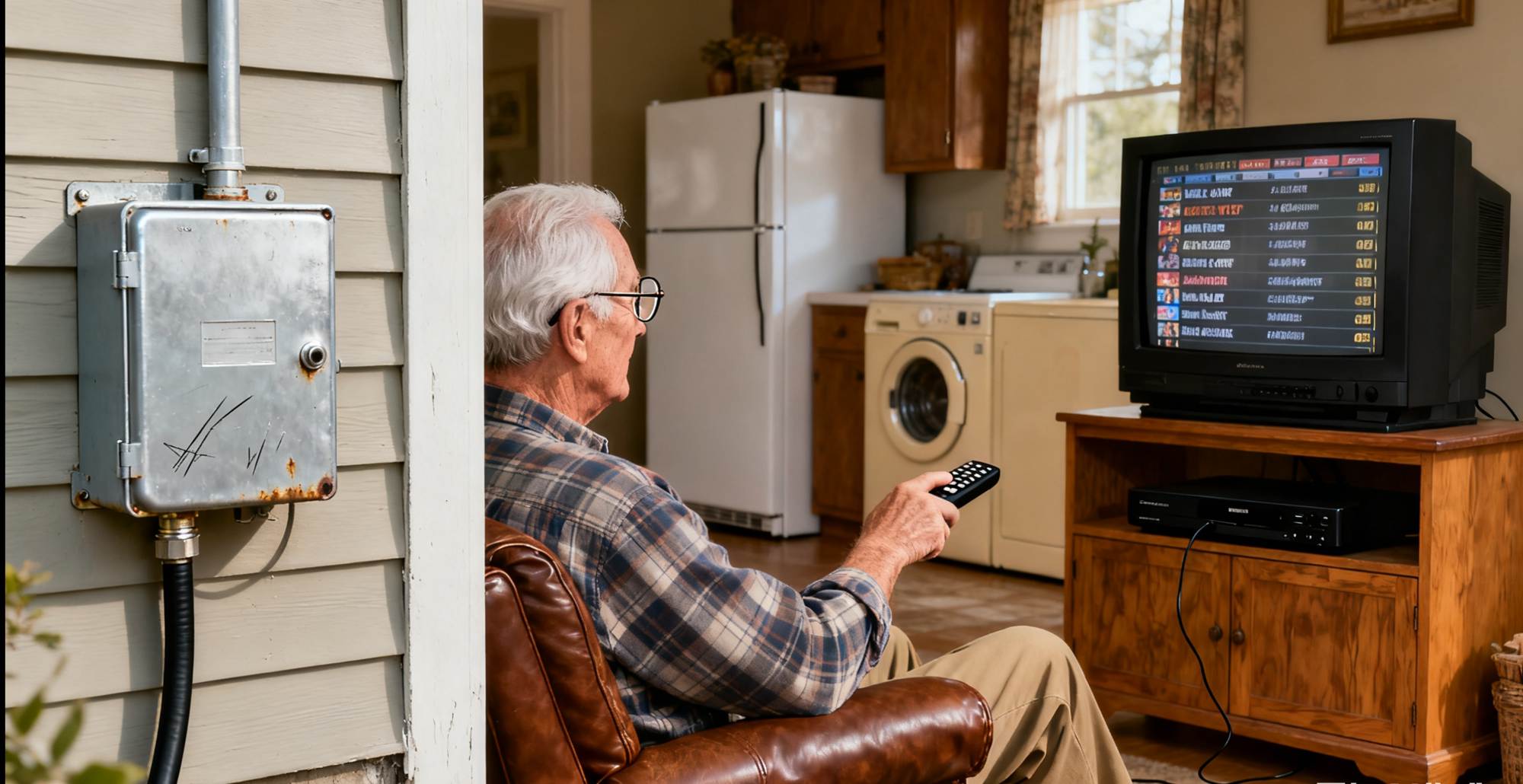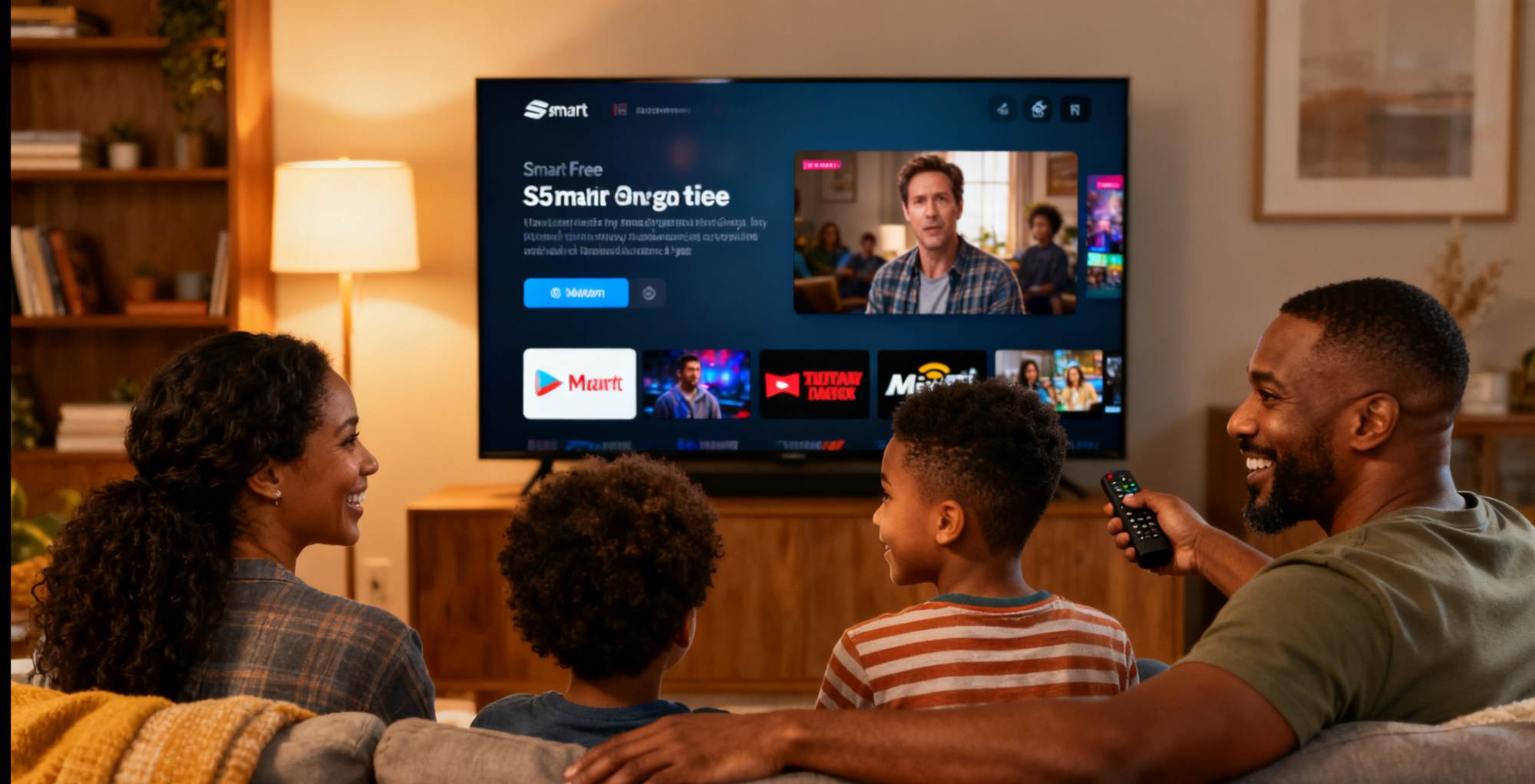In today's digital age, signal transmission methods have undergone numerous transformations. IPTV and cable TV are currently the two most common television signal transmission methods. However, with cable TV fees constantly rising and viewing choices becoming increasingly limited, many people are beginning to consider whether to finally switch to IPTV. Let's discuss the comparison between IPTV and cable TV before making a decision.
contents
1. What is IPTV?
2. What is Cable TV?
3. How Do They Transmit Content?
4. Key Technical Differences Between IPTV and Cable TV
5. Content Availability and Diversity Comparison
6. Cost Comparison
7. Performance
8. Stability
9. Compatibility and Flexibility
10. Summary
1. What is IPTV?
IPTV, or Internet Protocol Television, transmits television content via the internet instead of traditional broadcasting. It utilizes internet protocols to directly transmit live television channels, on-demand video, and other media content to compatible devices such as smart TVs, computers, or set-top boxes. Breaking the time and space limitations of traditional television, users can watch whatever programs they want, anytime, anywhere, achieving truly "personalized" viewing.
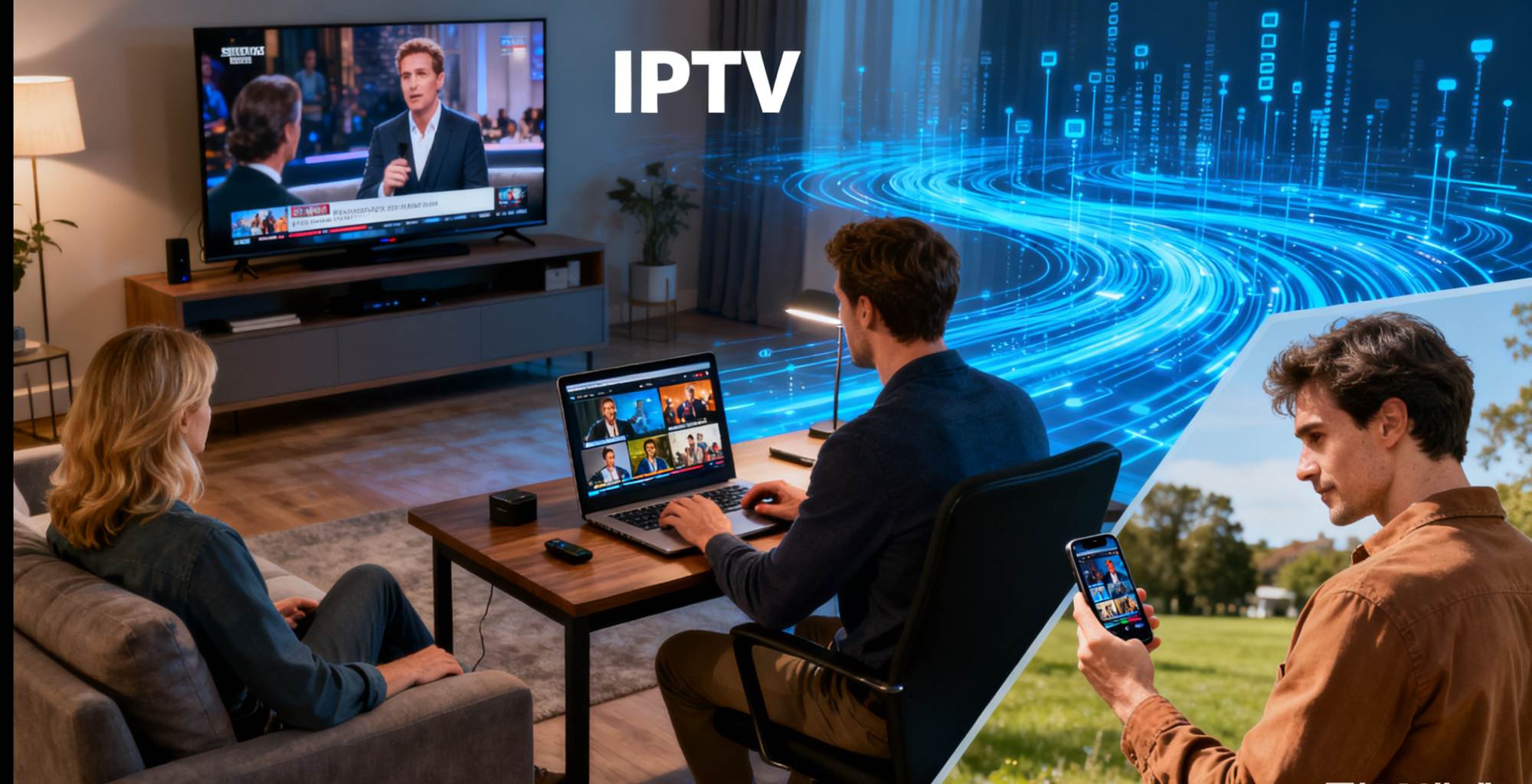
2. What is Cable TV?
Cable TV transmits signals from the service provider's front-end equipment room to your home via coaxial or fiber optic cables. A set-top box decodes these signals, ultimately displaying them on the user's television screen. You can watch linear programming according to a fixed schedule, including local channels, national television networks, and premium options bundled with packages.
3. How Do They Transmit Content?
IPTV and cable TV differ significantly in their content transmission methods, which determine their respective characteristics and applicable scenarios.
IPTV relies on broadband internet to transmit data packets to provide the specific content you request. This enables on-demand access and multi-device streaming.
Cable TV uses dedicated physical infrastructure for transmission, namely coaxial or fiber optic cables. The cable TV system transmits signals from all channels simultaneously,
regardless of what you are watching. This ensures stable signal transmission without relying on the internet. As long as the cable TV line is functioning properly, users can watch programs stably without buffering or interruptions caused by network congestion.
4. Key Technical Differences Between IPTV and Cable TV
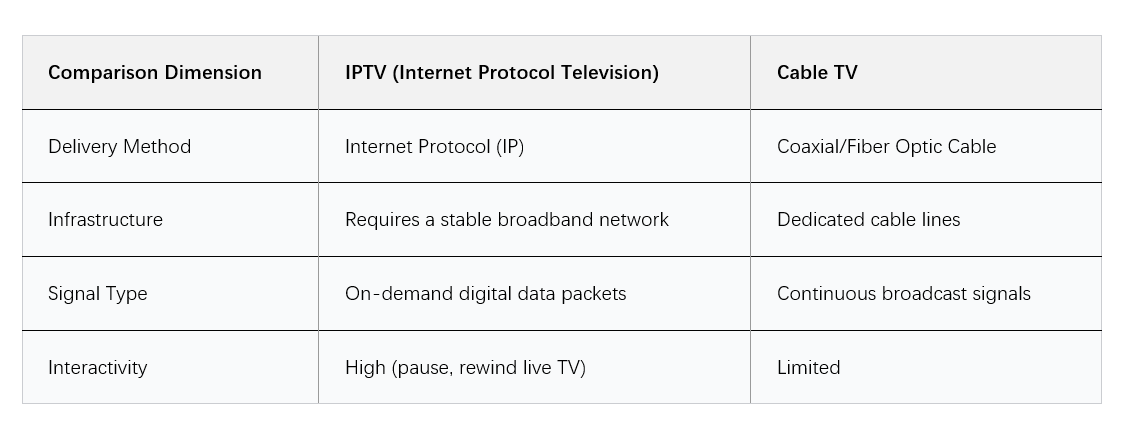
IPTV, based on IP, supports advanced compression technologies to improve efficiency, while cable TV infrastructure is built for widespread signal distribution.
5. Content Availability and Diversity Comparison
IPTV typically offers thousands of channels, including international channels, as well as a rich library of on-demand videos. Users can customize their subscriptions, avoiding bundled programs, saving money and enhancing the viewing experience.
Cable TV offers structured packages that include local broadcasts and pay-TV channels, but often includes filler content you might not watch. This content cannot be canceled individually, leading to some waste of resources and increased costs.
6. Cost Comparison
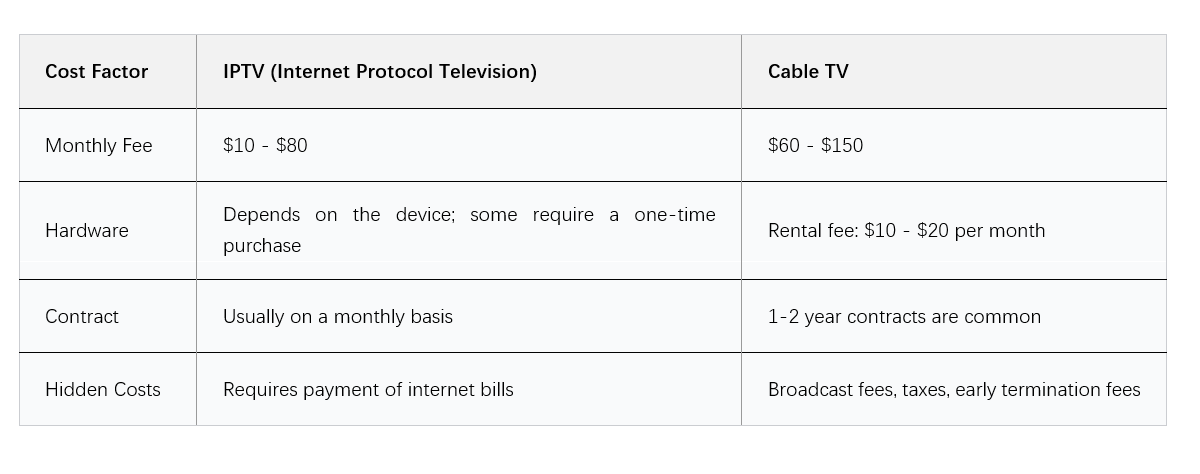
Costs vary by service provider and region. IPTV subscriptions typically cost between $10 and $80 per month, offering a wide range of services. In terms of hardware, IPTV equipment costs are relatively flexible; some set-top boxes can be purchased once and require no further payment, and installation and use are simple.
Cable TV costs an average of $60 to $150 per month, including equipment rental, installation, and potential contract breach penalties.
For users who want no monthly fees after an initial purchase, devices like the we2usat IPTV box provide access to channels and content without a continuous subscription.
7. Performance
Both support up to 4K resolution. Furthermore, some IPTV services, depending on hardware specifications, can support resolutions up to 6K/8K. However, IPTV picture quality is also partly dependent on internet speed (10-25 Mbps is recommended for HD/4K quality), and buffering may occur during peak hours.
Cable TV provides stable HD/4K signals via dedicated lines and is less affected by network congestion.
8. Stability
Cable TV is unaffected by internet outages and provides stable service in most weather conditions.
IPTV may experience interruptions due to network instability or speed throttling, but a stable network connection can minimize this.
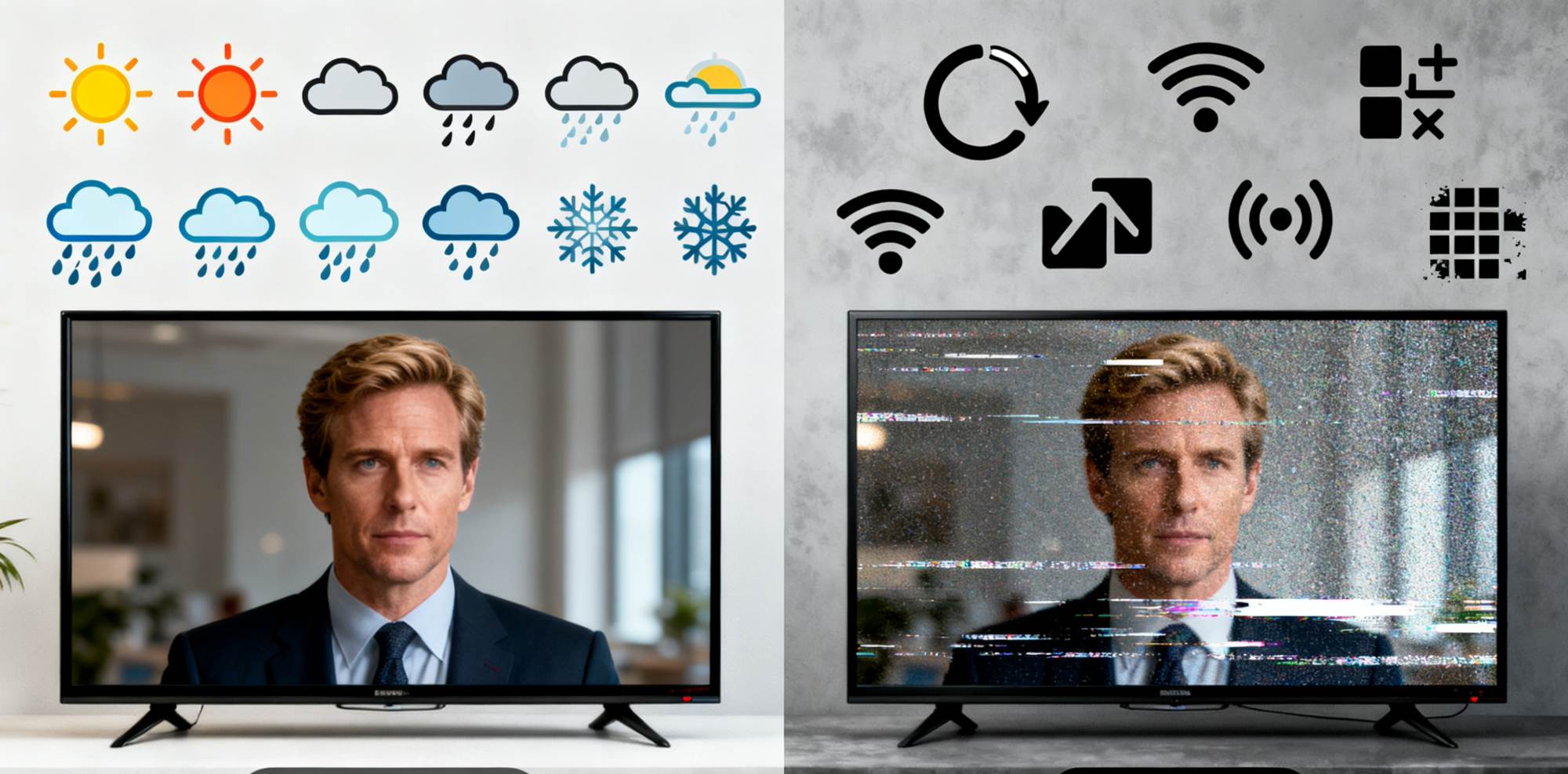
9. Compatibility and Flexibility
IPTV runs on smart TVs, smartphones, tablets, and streaming boxes, allowing users to watch anytime, anywhere via the internet.
Cable TV typically requires a home network connection, although some providers offer mobile applications.
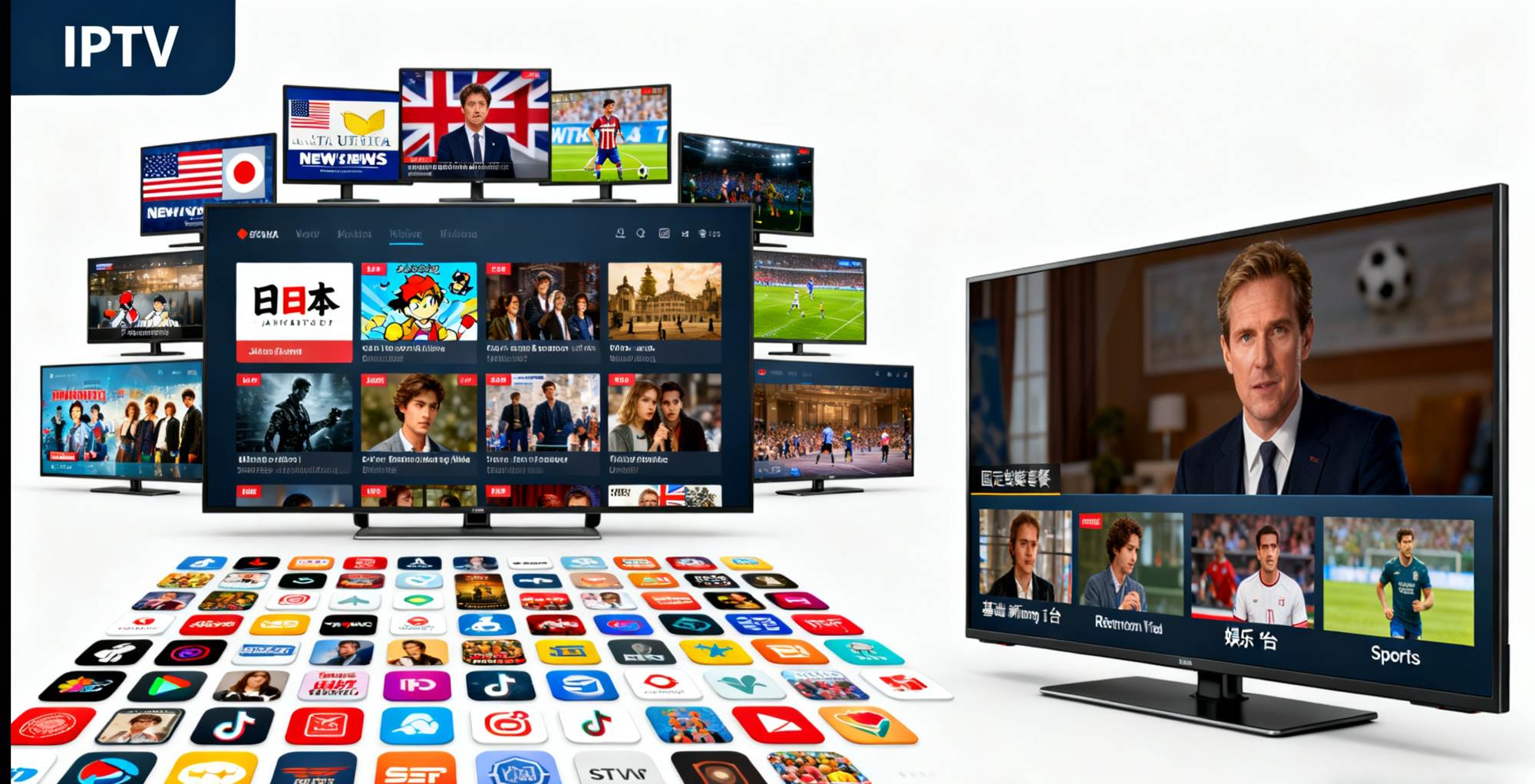
10. Summary
The final choice depends on your network stability, budget, and viewing habits. IPTV is suitable for users with stable broadband and a diverse range of content, while cable TV is better suited for users who prioritize stability.
If you are looking for IPTV hardware, consider we2ust, as it offers a one-time purchase model with no monthly fees. Ready to evaluate your options? Research service providers and embrace new entertainment experiences.
